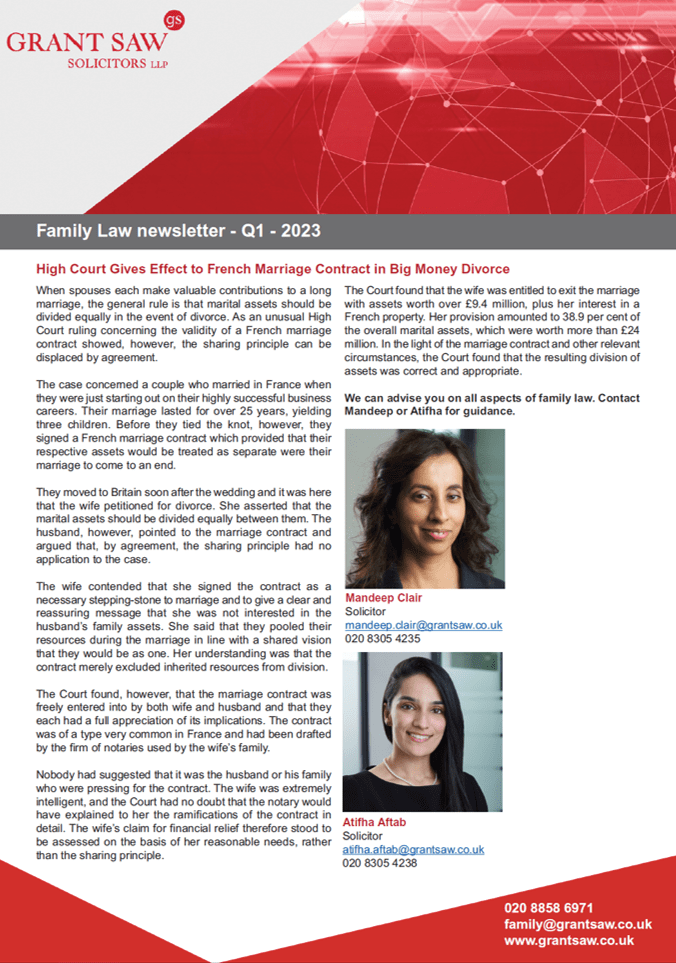The press, broadcast and online media report private information all the time but your doctor, your employer, your school or college, businesses, websites, apps, governments and individuals, to name but a few, also routinely use and often misuse your private information.
What kind of information is private?
Like an elephant, privacy is difficult to define but you know it when you see it. The Human Rights Act 2000 protects your right to respect for your family and private life, as well as providing protection to your home life and your correspondence.
These broad privacy rights have been interpreted by the Courts over the years to protect many things including:
- information about your health and medical treatment;
- information about your relationships and sexuality;
- photographs of you or your children;
- information about criminal or other investigations into you or your conduct;
- your HR and employee records;
- your banking and financial details; and
- your letters, emails, texts, voicemails and other private communications.
The questions the Court will ask are whether you had a reasonable expectation of privacy or whether the use of your private information would give substantial offence to an ordinary person placed in similar circumstances.
What kind of behaviour is misusing private information?
If someone publishes or reveals private information about you this may well constitute misuse. This might be a publication to the public at large by a newspaper or a website but might also include the leaking of private information to a smaller restricted group by an individual or organisation.
Additionally, if someone were to look at private documents or correspondence when they don’t have permission to do so there may well be a misuse or if they obtain and store private information about you they could well be misusing that information.
The Human Rights Act 1998 can protect private information itself but it is also concerned, importantly, to protect you from the act of intrusion into your private life.
The Court will look at all of the circumstances of the situation to establish whether your expectation of privacy was reasonable. It will take in to account, for example,
- who you are;
- whether you are a particularly private person;
- what it was you were doing that you say is private;
- if you were at home or in public;
- what sort of intrusion into your privacy you are complaining of;
- why someone intruded into your private life;
- whether there was any consent;
- the circumstances in which information came into the hands of the misuser; and
- the consequences of the misuse on you.
A publisher may try to defend a claim by arguing that they too have rights protected by the Human Rights Act and in particular that Article 10, the right to freedom of expression, protects their right to disseminate your private information. In this circumstance the Court will examine the facts of the case and then balance the competing rights to decide which is stronger.
If my information has been misused what can I do?
Grant Saw’s media litigation team can help you defend your private and family life as well as your home life and correspondence. We have a strong track record in obtaining excellent results for our clients.
Our first step is to either meet with you or to speak on the phone to take your detailed instructions and to discuss the options available to you. If appropriate to do so we would then write to your opponent to set out the legal basis for your objections, to their use of you private information and set out what they are required to do to try and rectify the position. This is also the first step in issuing any claim so, if they do not respond, we can then represent you and take matter all the way to the High Court.
If Court action is appropriate the primary remedies available from the Court for the misuse of private information are damages and injunctive relief.
Damages can be available to compensate you if the misuse has already occurred and they can be substantial. You can be compensated for:
- the infringement of the right itself;
- any distress you might suffer; and
- damage to your dignity or standing.
Injunctions are the Court’s mechanism for stopping a defendant from misusing your private information, primarily by restraining publication.
How much will it cost?
Any kind of litigation can be expensive but we will conduct a cost/benefit analysis of the situation with you at the outset and provide ongoing costs estimates and updates as the matter progresses. At Grant Saw we have all the benefits of being based in London but our fees are competitive compared to city centre firms.
Everyone’s situation is different, however it would generally be possible to take instructions, advise and draft an initial letter of claim for around £1,500-£2,500 plus VAT. If you would like to meet and discuss your options we can offer an initial one hour meeting at a set fee of £300 plus VAT.
Lastly we are happy to consider acting for you on a no-win-no-fee basis in circumstances where we think your clam has a good prospect of success and the potential defendant has the means to satisfy a judgment for damages and a costs award.
Meet the Media, libel and privacy team















































